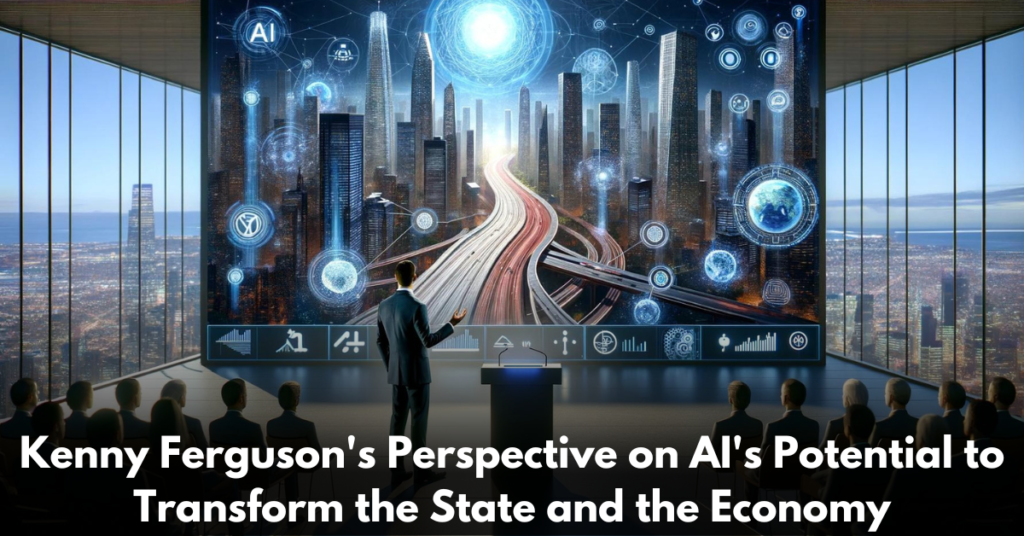Kenny Ferguson’s Perspective on AI’s Potential to Transform the State and the Economy
Artificial intelligence (AI) is a game-changing technology with the potential to transform state and economic systems, improve decision-making processes, and revolutionize a wide range of industries. However, adoption is slow, with an EY (Ernst & Young) study finding a strong interest in AI among technology leaders. Kenny Ferguson, former Head of Financial Services Communications at the Treasury and SpAd to Steve Barclay, advises the private sector to accelerate AI investment in order to fully realise its promise.
Despite increased use of digital technology, the UK’s productivity growth remains stagnant, owing to a disparity in the extent of investment and take-up across the economy. Ferguson believes that AI has the potential to revolutionize various industries and increase productivity, but that these benefits will only be realized if businesses actively invest in and integrate AI technologies into their operations.
Unlocking Efficiency in Public Sectors
Ferguson advocates for the integration of artificial intelligence (AI) into state systems to increase efficiency, particularly in sectors such as the NHS and civil service. He also believes that artificial intelligence has the potential to revolutionise public health approaches to crime prevention. The key is strategic investment and selective application, as AI technologies have the potential to streamline processes, automate tasks, and improve decision-making, resulting in increased productivity and competition.
This also emphasizes the importance of human capital development, citing Gavin Williamson’s Lifelong Learning Entitlement and AI’s ability to identify skill gaps and anticipate future needs. He also warns about the potential dangers of state intervention in the economy.
UK’s Electronic Trade Documents Act
Ferguson’s vision for AI integration goes beyond the UK, advocating that the UK lead the way in deploying AI to build a more flexible and market-driven economy. He calls for the democratization of trade finance and increased participation of SMEs through AI and machine learning, aligning with the UK’s Electronic Trade Documents Act.



